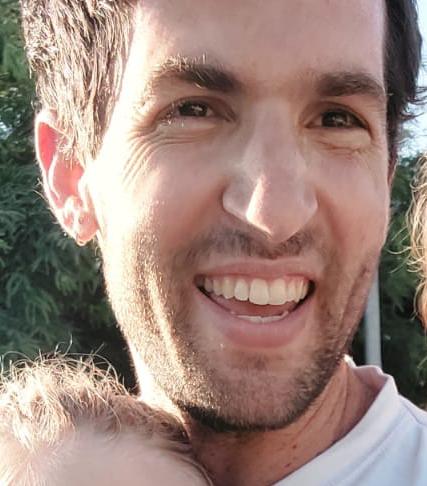The US hostages that won’t be released in Hamas prisoner swap
As Israel prepares for release of women and children held in Gaza, father of American hostage tells The Independent of his family’s agonising wait


As many as 50 hostages taken by Hamas could return to their families beginning on Friday in a prisoner swap deal that, along with an initial four-day ceasefire, represents the biggest diplomatic and humanitarian breakthrough in a conflict that has claimed over 15,000 lives in Israel and Gaza over the past month and a half.
But for Jonathan Dekel-Chen, a Hebrew University of Jerusalem history professor, the wait for his hoped-for reunion is set to go on. His son Sagui, 35, was kidnapped from the Nir Oz kibbutz during the brutal 7 October attacks.
The prisoner swap, which is expected to formally begin on Friday, is slated to involve only women and children being released from Gaza, followed by the staggered release of 150 Palestinian women and children from Israeli jails.
“That will mean that there another 190 hostages still held by Hamas, among them my son,” Professor Dekel-Chen told The Independent from the US, where he’s been meeting with Biden administration officials alongside other families with captured loved ones.
Both Jonathan and his son live on the Nir Oz kibbutz, about a mile from the Gaza border. Hamas militants tore through the close-knit community of 440, killing about 28 and kidnapping at least 75 in a “living hell,” according to the professor.
“All of them I’ve known pretty much all of their lives,” Professor Dekel-Chen continued. “They are my friends. They are my kids’ friends. They are my grandkids’ friends, in some cases whose parents were murdered October 7 on the kibbutz.”

Before he was captured, Sagui, described by his father as a “builder and a creator”, was up early tinkering on his hobby, converting old vehicles into mobile projects like food markets and digital classrooms to serve under-resourced communities in southern Israel.
He helped alert his fellow kibbutz residents when he saw heavily armed Hamas fighters entering the area.
Negotiations between Israel and Hamas, mediated by Qatar, remain ongoing over the final technical details of the exchange.
A senior US official told The Independent that three Americans were likely to be among the hostages released to Red Cross and then eventually Israeli custody.
The three include two adult women and a three-year-old named Abigail Edan, who was kidnapped from a kibbutz in southern Israel on 7 October, after Hamas killed her parents Roy and Smadar Edan.
“Well I am hopeful, our family is hopeful and it’s been 45 days since Abigail was abducted, taken to Gaza,” Abigail’s great aunt Elizabeth Naftali told CNN. “It’s excruciating.”
US officials believe around 10 Americans overall were taken captive in Gaza.
Among them are Hersh Goldberg-Polin, 23, who was born in Berkeley, California and moved to Israel as a child.
He had just finished his army service in April and was among those at an outdoor dance party near the Gaza border that was brutally targeted by Hamas.
Mr Goldberg-Polin, whose arm was blown off in an explosion, was taken away in a pickup truck by Hamas fighters.
Keith Siegel, 62, who lived in Israel for four decades, was taken alongside his wife Adrienne from the Kfar Aza kibbutz, where more than 100 people were killed in Hamas attacks. His brother, Dr David Siegel of Rochester, New York, told Good Morning America that Keith alerted fellow kibbutz residents of incoming rocket attacks.
Some of those Americans missing or presumed captured are dual US-Israeli citizens who were serving in the IDF.
Omer Neutra, 22, a New York-born IDF tank commander, was taken hostage alongside his unit, Israeli officials told his parents.
Edan Alexander, 19, of Tenafly, New Jersey, volunteered to serve in the Israeli military last year after graduating high school. He was on duty near the Gaza Strip on 7 October.
Another 19-year-old Israeli-American in the IDF, Itay Chen, is also missing.
Professor Dekel-Chen said that, regardless of what happens in the coming days with the hostages, the 7 October attacks, and looting by civlians that followed, shook him to the core.
He said he and his fellow “left-of-centre” kibbutz members were sometimes going “against the grain” in Israel by insisting on peace and coexistence with their Palestinian neighbours.
“The damage that’s been done here, to both sides of course, it goes far beyond what the camera can see,” he said. “For Israelis, certainly those that believe in the possibility of peace, we’re going to have to figure out what comes next.”
Join our commenting forum
Join thought-provoking conversations, follow other Independent readers and see their replies
Comments
Bookmark popover
Removed from bookmarks